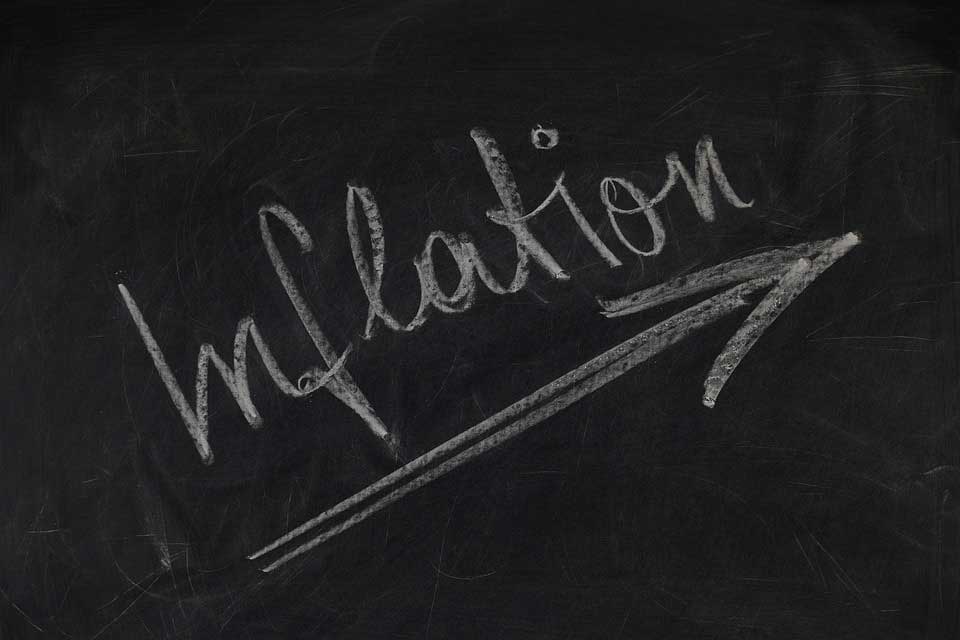Inflation is a vital economic concept but it can be difficult to grasp. Let’s talk about the effects of inflation on business and possible solutions.
How Does Inflation Affect A Business & How Do You Combat The Effects?
Inflation affects businesses in a variety of ways, including increasing their production costs, decreasing their purchasing power, and changing consumer behavior. When inflation occurs, the cost of materials, wages, and other production inputs rises, leading to higher production costs for businesses. These higher costs can lead to lower profit margins, which can result in decreased investment and reduced job growth. Additionally, inflation decreases the purchasing power of businesses and their customers, leading to decreased demand for goods and services. This can lead to reduced revenue and lower profitability. Finally, inflation can cause changes in consumer behavior as people adjust their spending patterns to deal with higher prices.
Inflation can have a significant impact on businesses, and it is important for business owners to understand its causes and potential effects. By staying informed about inflation trends and adjusting their strategies accordingly, businesses can better navigate this challenging economic environment.
What Is Inflation?
According to The World Bank, inflation is an increase in the overall price level of goods and services in an economy over a period of time. The International Monetary Funds further defines inflation as the rate at which the general level of prices for goods and services is rising and subsequently, purchasing power is falling. Overall, the term refers to the general rise in the prices of goods and services in an economy over time, leading to a decrease in the purchasing power of money.
Why Is The Current Inflation Rate So High?
There are several events that can cause inflation to rise. One such event is an increase in demand for goods and services, which can lead producers to increase prices to take advantage of the higher demand. Similarly, if the cost of producing goods and services increases, producers may raise their prices to maintain their profit margins, which can lead to inflation. A decrease in supply of goods and services while demand remains the same can also cause prices to rise due to the scarcity of the goods.
Additionally, expansionary monetary policy, which involves increasing the money supply and lowering interest rates to stimulate economic growth, can lead to inflation. If the increased money supply leads to too much demand without a corresponding increase in supply causes an increase in prices. Other factors such as devaluation of currency or external shocks like natural disasters or geopolitical events can also cause inflation. Inflation is a complex phenomenon that can be influenced by a wide variety of factors, including both domestic and global events.
As an after effect of the worldwide pandemic, inflation is at an all-time high. During lockdowns, households were saving and collecting stimulus money. At the same time, production and shipping was slowed. Once lockdowns were lifted, the demand for goods rose higher than the supply available resulting in rising prices. In addition, the war in Ukraine added to the economic disruption.
Is The Effect Of Inflation The Same For Every Company?
The effect of inflation is not the same for every company. Inflation can have both advantages and disadvantages for businesses, depending on the specific circumstances. There are some companies that are less impacted by inflation due to the nature of the services they provide and may actually benefit from inflation. However there are other companies that will feel the full impact of inflation and may need tips to help face it.
Advantages Of Inflation To A Business
Some of the potential advantages of inflation for businesses include increased revenues due to higher prices for goods and services, increased profit margins if the business is able to raise its prices faster than its costs increase due to inflation, increased asset values which can benefit businesses that own assets such as real estate, stocks, and commodities, and improved borrowing conditions due to lower real interest rates, which can make borrowing cheaper and more attractive for businesses that need to finance their operations. It’s important to note that these potential advantages are not universal and can vary depending on the nature of the business and the economic environment.
Negative Effects Of Inflation On Business
Inflation can also have negative consequences for businesses, such as increased costs of production, reduced consumer spending power, and uncertainty and instability in the economy. Therefore, while inflation can present opportunities for some businesses, it is generally seen as an economic problem that requires careful management by policymakers to avoid its negative impacts.
How Does Inflation Affect Large, Well-Established Companies?
These are some common effects of inflation on businesses that have been operating for a period of time.
Disruption In The Supply Chain
When prices go up, your business’s supply chain endures the most impact. The increased costs are most notable in your supply chain by the higher prices for supplies and services vital to your company operations.
Increase Of Consumer Price Index (CPI)
An increase in the CPI reflects the fact that over time the average price of goods and services has increased. Eventually this causes incomes and the cost of living to increase as well.
Decreased Purchasing Power
Inflation can still lead to increased costs for large businesses, even if they have more pricing power than smaller businesses. This can put pressure on profit margins and may require businesses to cut costs or find new efficiencies to maintain profitability.
Rise In Cost Of Borrowing
Inflation can make borrowing more expensive for large businesses, as interest rates may rise. However, large businesses may also have more access to capital than smaller businesses, which can help them weather the effects of inflation more easily.
Uneven Distribution In Foreign Exchange
If your company is located in a country with a higher inflation, the value of the currency will be lower than the value of other countries with a lower inflation which effects international buying power. Companies who import internationally will feel a negative effect based on the fluctuating value of currency while companies who export internationally may feel the positive effects of an increased demand due to the lower costs in other countries.
How Can Your Business Combat Inflation?
In order to adapt to the current economic environment, as a business owner you should take action now. Check out our blog article “Tips for Small Businesses Facing Inflation,” for ideas to help you battle rising prices.
We Are Here To Assist You
Whether your business is positively or negatively affected by inflation, our experts can help evaluate your company to help you maintain your footing amidst this economic crisis. Our goal is to help you build your business better.
You can combat the effects of inflation on your business. We can service your business operations management needs. Learn how here.



